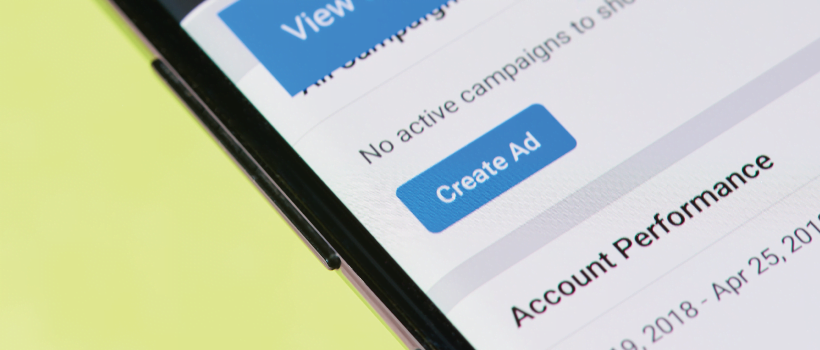Facebook Removes 5000 Ad Targeting Options In The Wake Of Scandals

It’s not exactly a mystery as to why Facebook is so massively valuable as a social media platform: it offers access to one of the single biggest user bases in the world. More than that, though, it also provides a huge amount of control over which of these users businesses might want to reach, and how they want to communicate with them.
This is where advanced targeting options come in. By choosing from an almost endless list of detailed advanced targeting options when you set up a campaign, you can tailor the demographics of your audience with unique precision, ensuring maximum interest, maximum sales and maximum return on investment. Now, Facebook is removing 5000 of these ad targeting options, which has the potential to affect hundreds of thousands of campaigns – including yours. Don’t worry, though! Below I’ll explain a little bit about why they’re making the change, how it might affect you, and what you can do about it.
Why is Facebook removing these targeting options?
The short answer is because evidence has come to light that they’ve been misused by advertisers, allowing them to exclude people for certain ethnicities and religious groups from viewing their ads. Specifically, some US housing providers have allegedly been discovered using these targeting options to prevent certain ethnic groups (such as black, Asian and Hispanic people) from seeing their housing ads on the platform.
In the wake of the following federal US government investigation, Facebook has decided to refine their targeting options to minimise the potential for abuse. In their own words: “While these options have been used in legitimate ways to reach people interested in a certain product or service, we think minimising the risk of abuse is more important.” (You can read their full statement here.)

I’ve got no envy for Facebook on this one, to be honest. The company has not had a whole lot of public sympathy in recent years, but there’s no denying that this is a particularly difficult line to walk. As far as businesses are concerned, Facebook’s ability to offer almost limitless customisation of a target audience is a core part of their product offering, so it’s understandable that they’d be reluctant to put any limits on it at all.
After all, you could argue that to some extent, exclusion is the whole point of precise targeting. And that’s fine. Including your audience naturally means excluding others (you won’t want to be selling sanitary pads to guys, for example). You can’t have one without the other. It’s only when that exclusion becomes unjustified and prejudicial that it becomes a problem.
Now, as humans, prejudice and discrimination is generally not that hard to spot, because we can apply our morals and judgement to the situation on a case-by-case basis. But Facebook’s challenge is how to adjust their framework on a massive scale to minimise the capacity for misuse. This latest measure isn’t going to completely solve the problem, not by any means. Certain advertisers will always try to use the system to discriminate, and Facebook is always going to have a running battle on its hands to try and stop them. But under all the recent public pressure, they’re certainly giving it their best shot, and removing these 5000 targeting options looks like a good first step for now.
What does this mean for you?

Facebook hasn’t gone into specific details about exactly which targeting options they’re removing, and it’s a good bet they’ll never release the full list publicly. What is certain, though, is that their removal is going to have a major effect on the way some people run their online campaigns. As Facebook highlighted in their statement, not everyone who refined their campaigns with these now-removed filters will have been doing so with malicious intent. To use a hypothetical example, restaurants or vendors who deal in halal or kosher foods won’t be able to filter their campaigns by religion, so will have to now find alternative ways of making sure their advertisements stay relevant to their audiences.
Thankfully, you don’t have to do any guesswork when it comes to working out if your campaigns have been affected. Facebook has left messages on the Ad Managers of accounts which has been using now-removed ad filters, so if you don’t spot a message, that means your campaigns are running just fine as they are.
What should I do if one of my campaigns has been affected?

Facebook is actively making the transition as easy as possible for advertisers, which is always good news! For every filter they’ve removed, they’re also providing suggestions for measures that could have a similar effect when used for targeting, but without such potential for misuse. For example, it’s still possible to target a page’s followers and their friends, which can help in reaching demographics that no longer exist as advanced ad filters. Plus, you can also use a Facebook pixel to build custom audiences, so you’ve still got plenty options for fine-tuning your audience on the platform. (Personally, I find creating lookalike audiences very helpful as an alternative, and often equally as effective. It’s a method I often use when managing the social media accounts of our clients here at 21Digital Agency.)
Facebook is also making an effort to introduce some educational resources for advertisers through the Ad Manager tool, to provide more detail on common questions. Advertisers in the US will be the first ones to benefit from these, but Facebook has promised in its statement to expand these to other countries over time.
And of course, we’re always here to help. Social media is one of our core services here at 21Digital Agency, and as the agency’s social media executive I’ve got years of experience in crafting bespoke social media campaigns that deliver on your specific commercial objectives. We’re currently doing some brilliant work on a campaign for Lancashire Tea, so watch this space for the results! In the meantime, you can always give us a call on 01254 660 560 to see how we can help you make it on the web!

As 21Digital Agency Social Media Executive, Ben is responsible for crafting engaging, innovative campaigns that achieve each client’s specific commercial objectives. As well as curating content through liaising with in-house copywriting and design teams, Ben is constantly adapting his campaigns to the latest industry trends, to ensure they’re always delivering the very best results.










